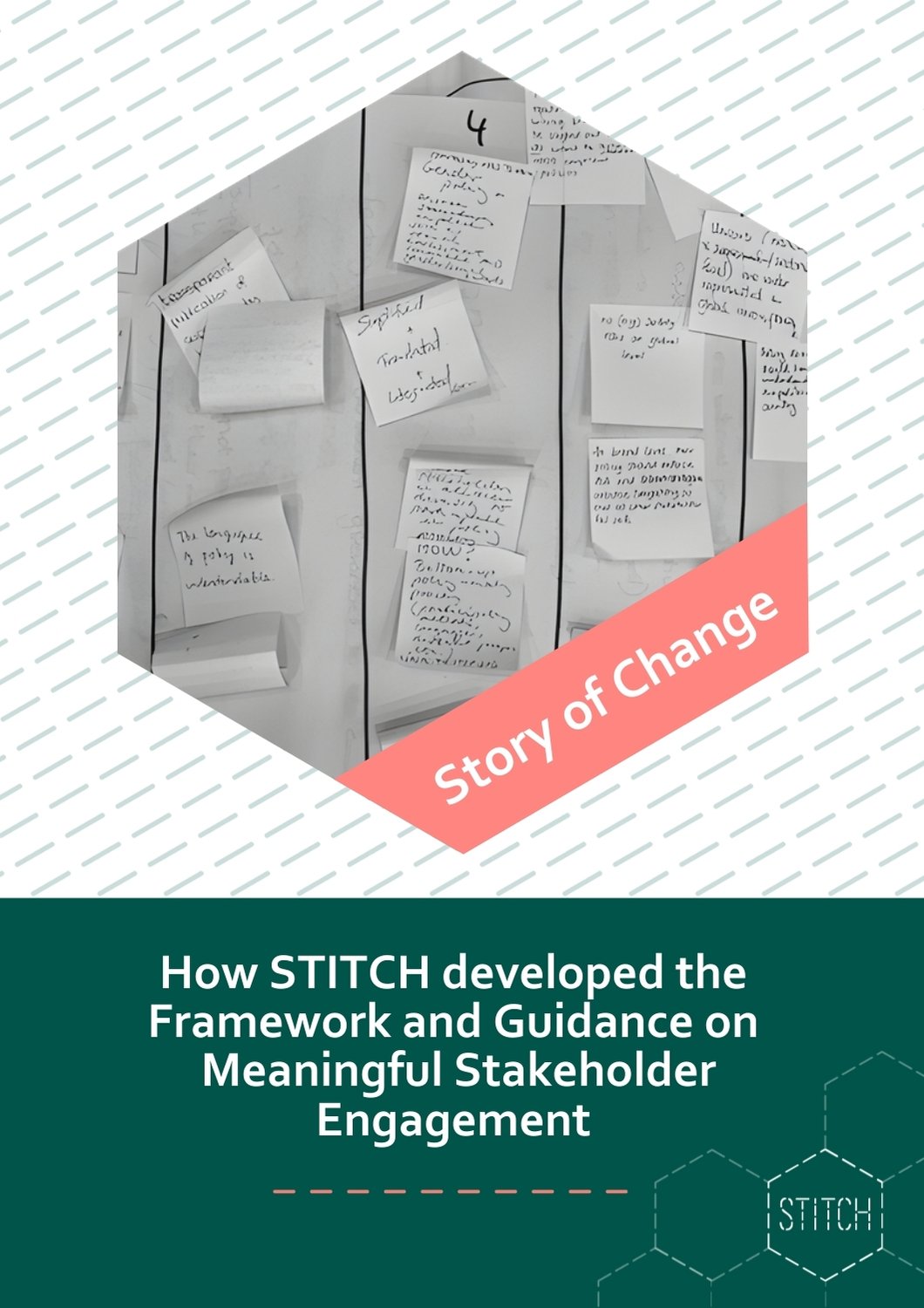STITCH Resources: Creating an enabling environment for human rights in business
STITCH contributes to shaping effective human rights due diligence by bringing diverse stakeholder voices into policy and practice—both in EU legislation like the Corporate Sustainability Due Diligence Directive (CSDDD) and in-country efforts on wages and gender equity. By developing OECD-aligned frameworks on purchasing practices and stakeholder engagement, we help the garment industry implement more responsible, collaborative, and future-proof approaches.
The Framework on Meaningful Stakeholder Engagement (MSE Framework)
STITCH has developed a guide designed to help companies embed meaningful stakeholder engagement into their human rights due diligence efforts. Built on five principles – legitimacy, accessibility, safety, equitability, and respect – the MSE Framework moves beyond the check-the-box approach, driving real value for workers and businesses.
Technical Guidance on Meaningful Stakeholder Engagement in the Garment, Apparel and Textile Sectors
The STITCH consortium has released the Technical Guidance on Meaningful Stakeholder Engagement in the Garment, Apparel and Textile Sectors, providing sector-specific tools to integrate meaningful stakeholder engagement (MSE) across human rights due diligence processes. It translates the concept of MSE into practical steps companies can take, while helping to harmonise approaches in the fragmented garment industry.
The CFRPP was developed in 2022 by the Ethical Trading Initiative, Ethical Trade Norway, the German Partnership for Sustainable Textiles (PST) and Fair Wear.
The framework can be used by companies who are taking action to improve purchasing practices, MSIs and other organisations supporting companies in this, as well as a reference point by policymakers.
Explore how this framework was developed in this Story of Change
The Common Framework for Responsible Purchasing Practices (CFRPP)
The Purchasing Practices HRDD Framework
The PP-DD Framework, developed by the Responsible Purchasing Practices Working Group, offers recommendations for policymakers, regulators, multi-stakeholder initiatives, and investors to drive greater transparency, comparability, and accountability across the industry.
It outlines the key steps companies should take to make their purchasing practices more responsible through an HRDD approach, and details what is required of purchasing companies at each step to ensure this approach is meaningful.
POSITION PAPER | Effects of the Omnibus changes to performing human rights due diligence: the view from practice (June 2025)
The STITCH consortium welcomed the adoption of the EU Corporate Sustainability Due Diligence Directive (CSDDD), which was a great step towards making respect for human rights in the workplace the norm — especially in complex global industries like textiles and garments. At the same time, we’re concerned that the latest Omnibus proposals by the Council and the JURI lead rapporteur have clearly moved away from the proven risk-based approach of international standards like the UNGPs and OECD Guidelines.
They introduce ‘plausible information’ as a condition to act, shifting responsibility for identifying human rights risks from companies to outsiders. This risks creating more bureaucracy, less impact — and leaves some of the most serious issues unaddressed. Moreover, the Council's agreed position has changed 'plausible information' into 'objective and verifiable information', placing a bigger burden on civil society when calling attention to issues.
Read the full position paper HERE.
Gender Marker Tool
The Gender Marker Tool (GMT) was created by the STITCH partnership – initially as a web-based interactive tool for internal use – to assess STITCH interventions for gender.
Now it has been repurposed as a resource for broader use, applicable across different sectors and project types.










Social Dialogue Briefing Note
Social dialogue is widely referenced across the garment sector, yet expectations often differ. This briefing note aims to create a shared understanding of what social dialogue means, how it works at different levels, and the roles and responsibilities of everyone involved.
This document is designed for a broad range of stakeholders – trade unions, labour rights groups, NGOs, factories, and brands. While developed for the textile sector, much of the guidance is relevant beyond it.
Download the PDF